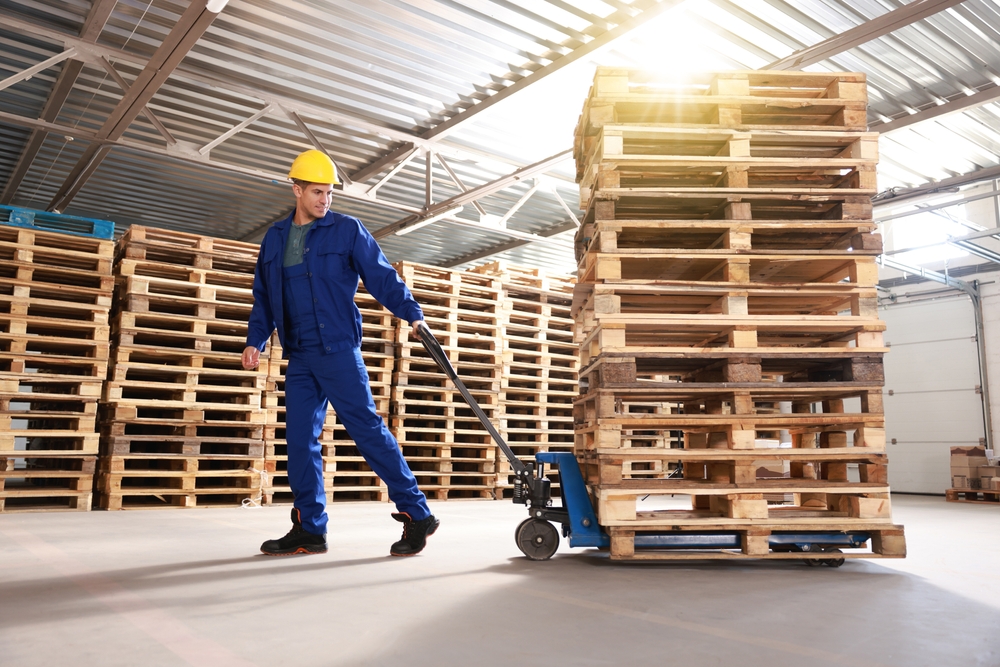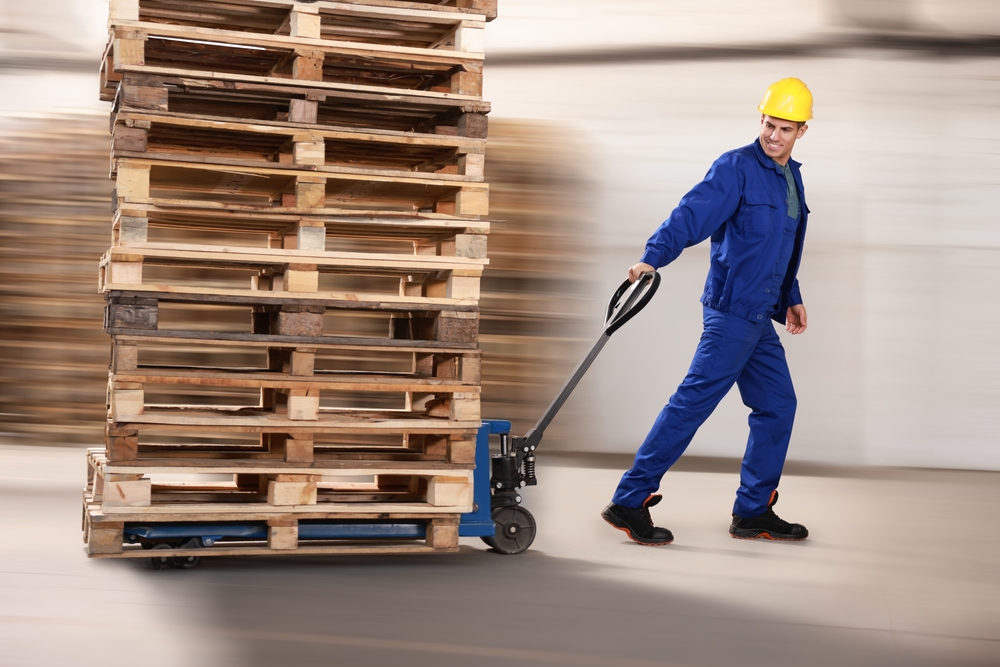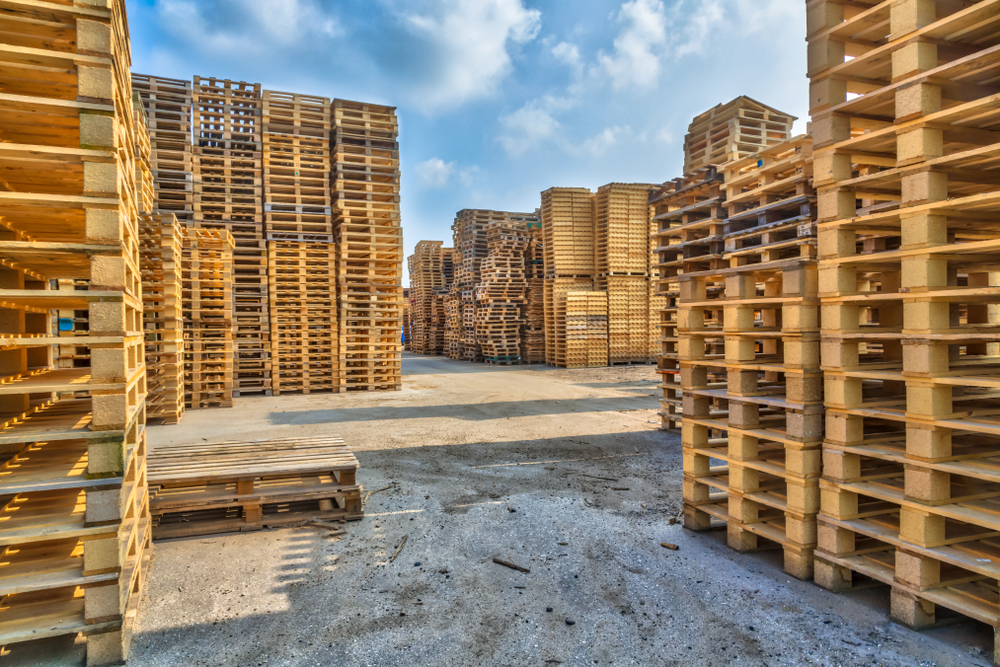Why Are Wood Pallets So Expensive?
If you’re new to purchasing wood pallets, you may be surprised at the cost that some providers sell their pallets for. But what actually goes into the pricing? And is it worth it?
In this guide, we will provide answers to the question ‘Why are wood pallets so expensive?’. All whilst providing supplementary information to help you find the best solutions, and the answers you need.
A and M Pallets Ltd is an established and respected supplier and producer of a wide array of pallets. Our services are designed to provide many industries with safe, strong and superior pallets of many varieties.
Our solutions are sure to help those in need of pallets for all sorts of logistical needs. We provide full pallet delivery and collection services in Cornwall, Devon, Somerset, Dorset, Wiltshire, and Avon.
How are wood pallets made?
One of the factors that affect the cost of a wood pallet is the labour and processes required to make the pallet itself. With that in mind, let us explore the process in which a wooden pallet is made from the start.
Please note that this is a general process and is not reflective of every individual business who process their own pallets.
The creation of wooden pallets involves five key steps, transforming raw lumber into the workhorses of the shipping and storage industry. Here’s the process:
1. Material Selection:
- Wood Types: Wood pallets are typically made from a combination of hardwood and softwood. Oak, known for its strength and wide availability, is a common choice for hardwood. Pine, a cost-effective and lightweight option with good strength-to-weight ratio, is a popular softwood selection.
- Sourcing Lumber: Pallet manufacturers often obtain wood from local sawmills in the form of large slabs of wood called pallet cants.
2. Processing the Wood:
- Cutting and Sizing: The pallet cants are trimmed to the desired length and width based on the specific pallet size requirements.
- Board Creation: These trimmed cants are then cut further into individual boards for the deck (top surface) and stringers (support structure) of the pallet.
- Notch Cutting (Optional): Depending on the pallet design, notches might be cut into the stringers to enable forklift access from all sides (four-way entry) or just from the front and back (two-way entry).
3. Treatment (Optional):
- Heat Treatment: For international shipping, pallets may undergo heat treatment to comply with ISPM 15 regulations. This process eliminates pests that could pose a threat to foreign ecosystems.
- Chemical Treatment: In some cases, pallets might be treated with chemicals for additional protection against rot, insects, or fungi, especially if used in harsh environments.
4. Assembly:
- Fastening the Parts: The individual deck boards and stringers are securely fastened together using nails or screws. Pneumatic nailing machines are commonly used for efficient assembly in production facilities.
5. Quality Control:
- Inspection and Testing: Finished pallets undergo inspection to ensure they meet quality standards and size specifications. Some pallets might also be subjected to weight-bearing tests to verify their structural integrity.
Why are wood pallets so expensive?

The reasons behind expensive wood pallets in the UK are similar to the global trends, but with a local twist:
- Soaring Timber Prices: Just like elsewhere, the cost of lumber is the main driver for expensive wood pallets in the UK. Here’s a breakdown of the contributing factors:
- Global Supply Chain Issues: Pandemic-related disruptions continue to affect the import and export of lumber, impacting availability in the UK.
- Brexit Impact: The UK’s exit from the European Union has added additional customs bureaucracy and potential delays to timber imports, impacting overall supply.
- Increased Domestic Demand: A strong construction sector and growing DIY culture in the UK are putting a strain on domestic timber supplies, pushing prices higher.
- Metal Costs: The price of steel nails or fasteners used in pallets has also increased globally, adding to the overall production cost.
- Labour Market: The UK has experienced labour shortages in various sectors, including manufacturing. This can lead to higher labour costs for pallet production.
Is there an alternative to new wood pallets?
Yes. Here are some options businesses in the UK can explore:
- Used Pallets: The UK has a well-established market for used or reconditioned pallets. These can offer significant cost savings compared to new wood pallets.
- Heat-Treated Wood Pallets: For export purposes, some countries require heat-treated wooden pallets to comply with ISPM 15 regulations. While these might have a slightly higher upfront cost compared to untreated pallets, they can be essential for international shipping.
- Plastic Pallets: Although typically more expensive upfront than wood, plastic pallets can offer a longer lifespan and lower maintenance requirements in the long run. This might be a viable option for businesses with high pallet usage.
Which businesses benefit the most from wood pallets?
Manufacturing and Distribution:
- Efficient Product Handling: Pallets provide a stable and secure platform for transporting and storing goods, allowing for efficient movement within factories, warehouses, and during distribution. Forklifts and pallet jacks can easily handle palletized goods, streamlining the loading, unloading, and overall handling process.
- Inventory Management: Pallets help organize and optimize storage space in warehouses. Stackable pallets allow for vertical utilization of space, maximizing storage capacity. Additionally, palletized goods are easier to track and manage within inventory systems.
Import and Export:
- Standardized Shipping: Wood pallets adhere to international size and weight standards (like ISPM 15), facilitating smooth international trade. This standardization allows for seamless movement of palletized goods across borders and between different shipping methods (trucks, ships, trains).
- Protection During Transport: Pallets elevate goods from the ground, minimizing exposure to moisture, dirt, or potential damage during transportation. The sturdy construction of wood pallets offers protection against impacts and crushing during long journeys.
- Agriculture: Wood pallets are widely used in agriculture for transporting and storing crops, fertilizers, seeds, and other farming supplies. Their breathability can be advantageous for some produce, while the weight capacity allows for efficient bulk transportation.
- Retail: Many retail stores utilize pallets to receive and store bulk shipments of merchandise. Pallets can be used to create temporary displays or even serve as foundations for permanent shelving units within the store.
- Construction: Wood pallets find various applications in construction. They can be used for transporting building materials like bricks, bags of cement, or lumber. Discarded pallets can even be repurposed for temporary work surfaces or makeshift pathways on construction sites.
Where to order affordable wood pallets

The easiest way to order new timber pallets for your needs, and to your specification, is by contacting A and M Pallets Ltd.
A and M Pallets Ltd is a leading supplier of various pallets for over 30 years. We know many of our customers have unique needs, this is why we cater specifically towards your exact preferences. We have the ability to design and manufacture almost anything you can ask for in a pallet. So what makes us special?
We cater to any quantity:
Need one pallet or a thousand? We’ve got you covered. For complete peace of mind, we offer samples so you can experience our premium craftsmanship first hand before committing to a large order.
Sustainability matters:
We source only virgin wood stock from the most responsible suppliers in the UK, supporting local sawmills and promoting environmentally conscious practices throughout our industry.
Experience the A&M difference:
Our time-tested production and delivery process ensures a smooth experience, getting you the high-quality pallets you need, exactly when you need them.
What to expect from new timber pallets
When you receive your new timber pallets, you should expect the following as standard:
- Professional delivery: Expect careful handling of your new pallets.
- Brand-new condition: Pristine wood, free from damage or wear.
- Uniform construction: Consistent size and build for reliable stacking. (relative to your specifications).
- Smooth surfaces: Safe for handling and minimizing product damage.
- Standardized sizes: Compatible with most racking and forklift systems.
- High-quality timber: Exceptional strength for heavy loads.
- Optimized storage potential: The pallets can be stacked efficiently.
- Streamlined operations: Their strong constitution results in faster loading, unloading, and overall workflow.
- Long-lasting durability: Get years of reliable service from your pallets.
Order top-quality wood pallets today

As the South West’s largest independent producer and supplier of new and reconditioned pallets, we at A and M Pallets Ltd pride ourselves on providing unrivalled services and the best possible pallets since 1989.
Our hard work, in addition to our loyal and ever-expanding customer base, has allowed us to provide comprehensive coverage through the South West and further afield though our four sites in St. Austell, Tavistock, Launceston and Willand.
Producing over 45,000 pallets a month, you can be sure we will have what you are looking for, whether it is used pallets, new pallets, plastic pallets or ISPM15 heat treated pallets, we are here to help.
In this guide, we hope to have explained why wood pallets are so expensive. Whilst providing helpful additional information, including our unparalleled services. Our expert team is here to help you on each step of your journey with us, for more information, you can contact us here, or find us below at:
Head Office:
- Unit One Northcott Hamlet
- Launceston
- Cornwall
- PL15 9RQ
- T: 01409 211386
- E: admin@aandmpallets.co.uk
- Mon – Fri: 9am to 5pm
Austell Office:
- Brighton Cross
- Grampound Road
- Truro
- Cornwall
- TR2 4HD
- T: 01726 882122
- E: info@aandmpallets.co.uk
- Mon – Fri: 8am to 5pm
Tavistock Office:
- Haye Down Ind. Est.
- Chillaton
- Tavistock
- Devon
- PL19 0NN
- T: 01822 860456
- E: info@aandmpallets.co.uk
- Mon – Fri: 7am to 5pm
Willand Office:
- 5 Willand Rd Bus. Park
- Willand Road
- Willand
- Devon
- EX15 2RF
- T: 01884 841942
- E: info@aandmpallets.co.uk
- Mon – Fri: 8.30am to 4.30pm
